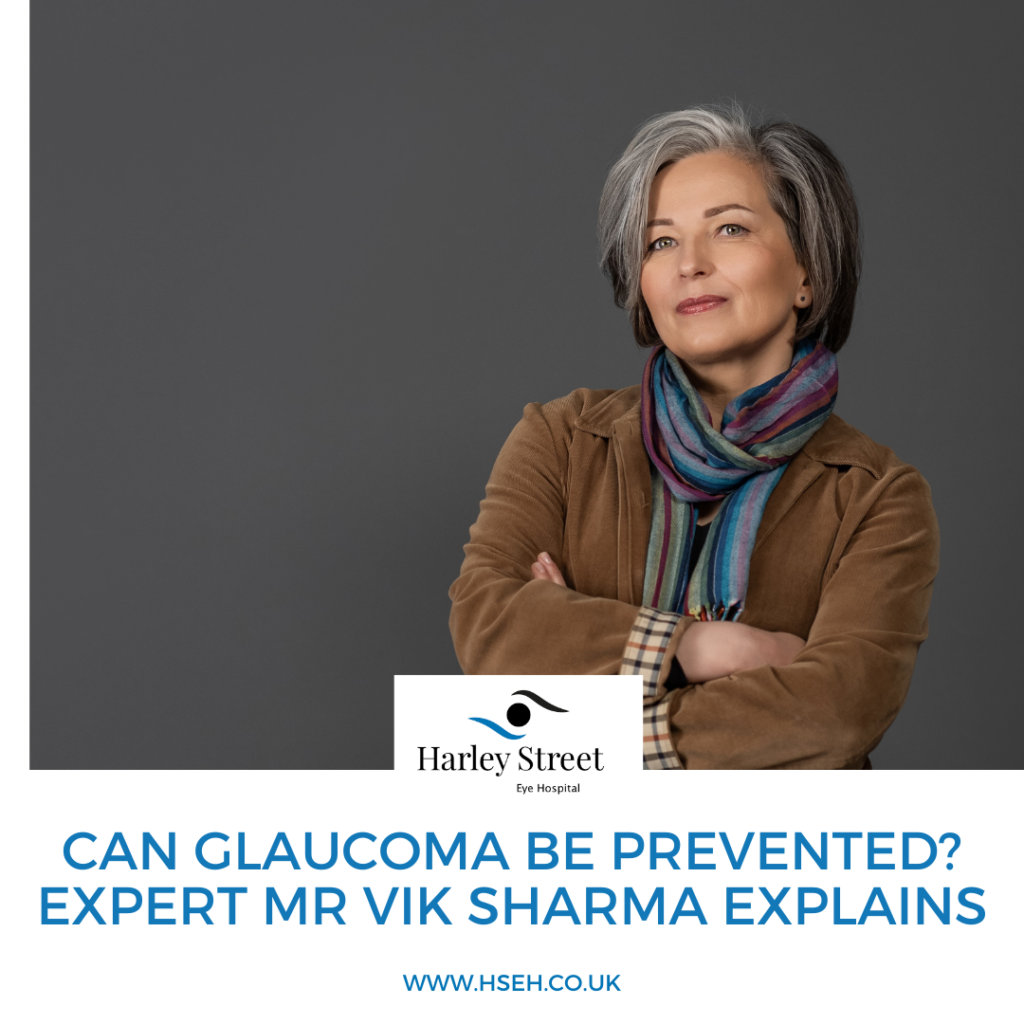Glaucoma is a serious eye condition that can lead to permanent vision loss if left untreated. Often called the “silent thief of sight,” it typically develops without noticeable symptoms in its early stages. By the time vision loss becomes apparent, significant damage to the optic nerve may have already occurred.
Knowing when to see a specialist is critical to catching the condition early and preserving your vision. Here’s what to watch out for and when to seek expert care.
What is glaucoma?
Glaucoma is a group of eye conditions that damage the optic nerve, which is essential for transmitting visual information from the eyes to the brain. This damage is often caused by elevated intraocular pressure (IOP), but glaucoma can also occur with normal eye pressure.
The most common types of glaucoma include:
- Primary Open-Angle Glaucoma (POAG): A slow-progressing condition with no obvious early symptoms.
- Angle-Closure Glaucoma: A less common type that can develop suddenly and is considered a medical emergency.
Without early detection and treatment, this condition can lead to irreversible vision loss or blindness.
Warning signs that require a specialist visit
Gradual loss of peripheral vision
One of the first signs of primary open-angle glaucoma is the gradual loss of peripheral (side) vision. This may not be immediately noticeable because it progresses slowly. Over time, this loss can result in tunnel vision or difficulty seeing objects at the edges of your field of view.
Sudden vision changes
Sudden blurring or dimming of vision could be a sign of acute angle-closure glaucoma. This type of glaucoma develops quickly and requires immediate medical attention to prevent severe damage.
Severe eye pain
Sharp or intense pain in the eye is another warning sign of angle-closure glaucoma. If this is accompanied by redness or discomfort, it’s crucial to see a specialist immediately.
Halos around lights
Seeing rainbow-coloured halos or bright rings around lights is a common symptom of elevated eye pressure, often associated with angle-closure glaucoma.
Redness in the eye
Persistent redness, particularly when paired with discomfort or blurry vision, should be evaluated by an eye specialist.
Nausea and vomiting
If you experience nausea and vomiting alongside eye pain or blurred vision, it may indicate acute angle-closure glaucoma, which requires emergency care.
Family history
Even without symptoms, individuals with a family history of this condition should see a specialist regularly. A genetic predisposition increases your risk, and early monitoring can make a significant difference.
When to schedule routine screenings
If you fall into any of the following high-risk groups, it’s essential to have regular eye exams, even if you don’t notice any symptoms:
- Age 40 and older, as glaucoma risk increases with age.
- Individuals with a family history of the condition.
- People with medical conditions like diabetes, hypertension, or near-sightedness.
- Individuals of African, Asian, or Hispanic descent, as these groups are more prone to this condition.
For most adults, an eye exam every 1-2 years is recommended, with annual screenings for those at higher risk.
What to expect from a specialist visit
When you visit an ophthalmologist for a glaucoma evaluation, they’ll perform several tests to assess your eye health:
- Tonometry: Measures intraocular pressure.
- Optic Nerve Examination: Checks for damage to the optic nerve.
- Visual Field Test: Identifies blind spots in your peripheral vision.
- Gonioscopy: Examines the drainage angle in your eye to determine the type of glaucoma.
Early diagnosis can lead to effective treatment, including eye drops, laser therapy, or surgery, to manage the condition and protect your vision.
Glaucoma is a condition where time is of the essence. By recognising the warning signs and seeking help promptly, you can prevent significant vision loss. Whether you notice gradual changes in your vision or experience sudden symptoms like severe pain or halos around lights, don’t delay in contacting a specialist.
Regular eye exams are your best defence against glaucoma. If you’re at risk or overdue for an exam, book a consultation with an eye care professional today. Early detection could save your sight.





0 Comments